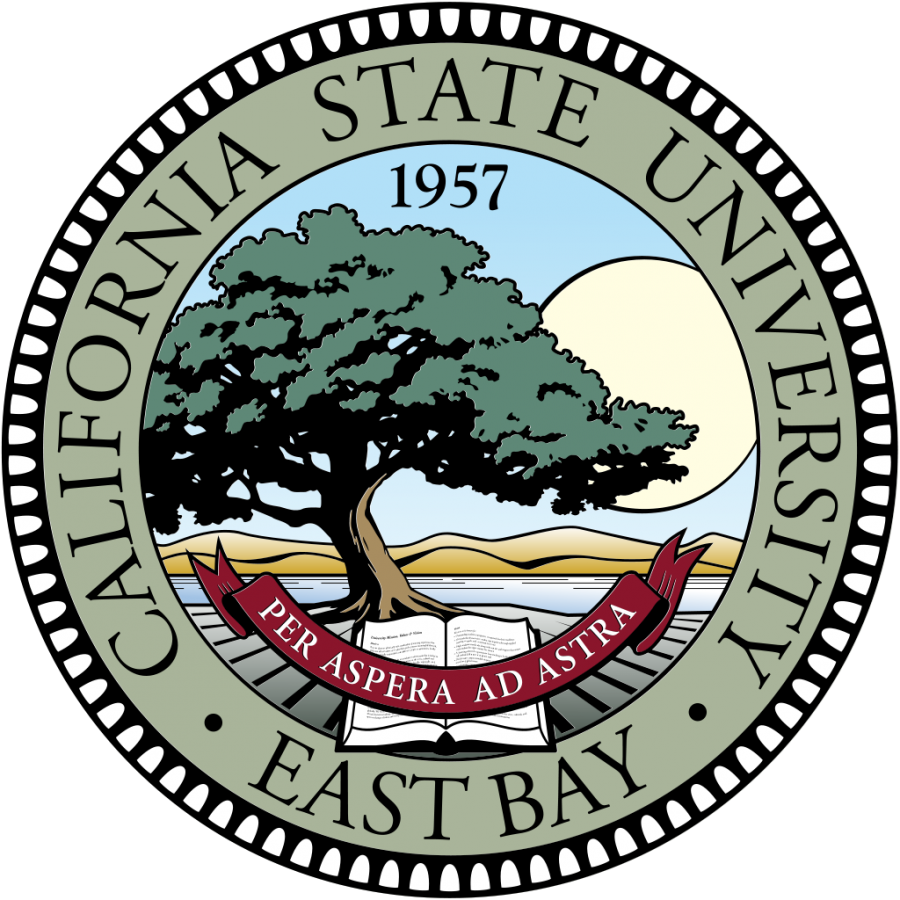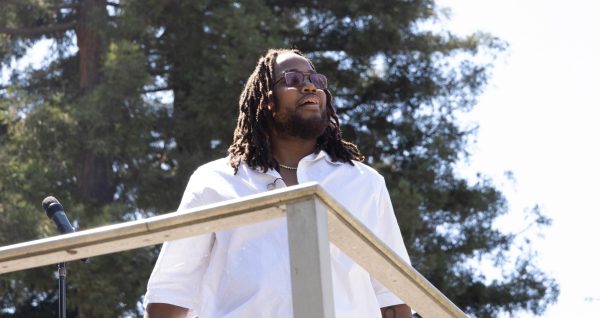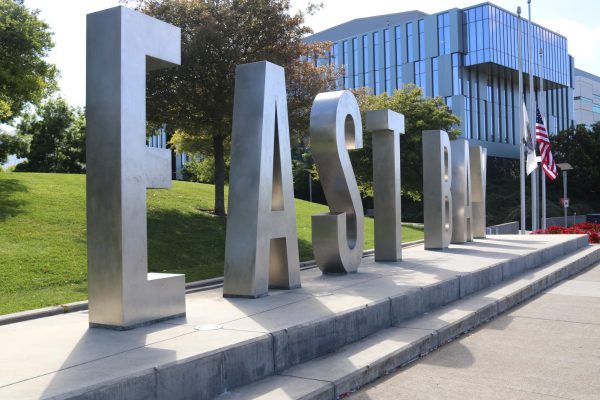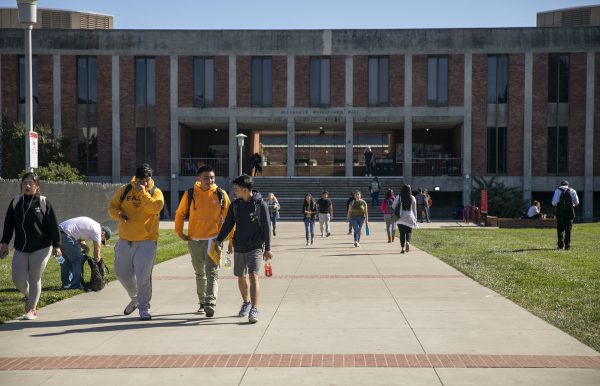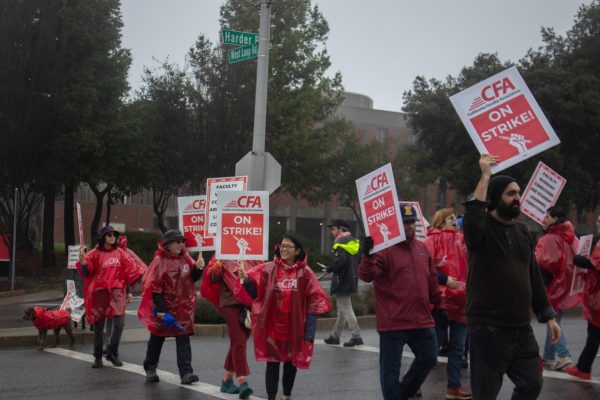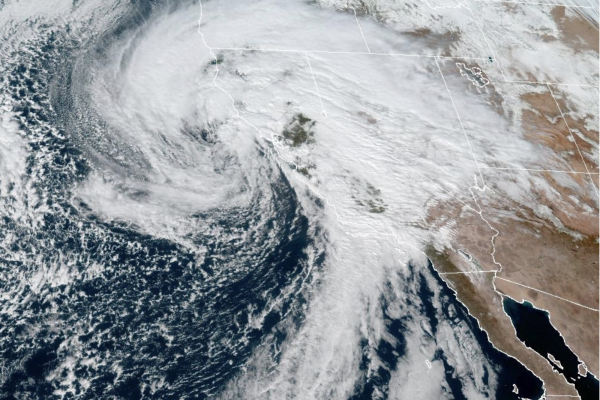Queer community make themselves known
March 15, 2017
On March 3 and 4, CSUEB students, universities, nonprofit organizations, a plethora of 18 to mid-20-year-olds and parents entered the New Union at Cal State East Bay’s Hayward campus armed with goodie bags filled with notebooks, pens, brochures and plastic water bottles for the 2nd annual Queer Conference.
The two-day event featured presentations by activists in the LGBTQ community, CSUEB faculty and students. This year’s conference was called “Connecting Our Communities” and focused on building a stronger community.
A pre-conference was held at the New Union with a three-hour workshop on “Trans Allyship,” which taught attendees about about the “trans” and gender non-binary identities.
On March 3, CSUEB vice president of Student Affairs, Julie Wong, hosted the opening address. Shane Ortega, featured on HBO’s documentary “Translist” and the first transgender person to transition while on active duty for the United States military, was the keynote speaker for this year’s event.
On March 4, attendees chose from 19 different events that ranged from panels, roundtable discussions, presentations and workshops. The events were hosted by CSUEB professors, faculty and LGBTQ activists, according to Liam Hawkyard, co-founder of the Queer Conference.
Topics included current social issues and politics within the queer community and advice on how to “survive” in it. There were presentations about extending support for people with non-binary gender identities and acknowledging the struggles that occur within the queer community that are often not discussed by mainstream media.
The event was co-funded by ASI and Diversity and Inclusion Student Center with a budget of $15,000, which was used for a breakfast of danishes, muffins, fruit and water. The money was also used for a lunch of sandwiches and various supplies for the event, which included pens, notebooks, Queer Conference bags and pamphlets, according to Hawkward. Out of the 160 spots available due to the fire code, 127 people attended the conference.
Before he graduated CSUEB in 2016, Hawkyard and his friend Bucket Mayweather wanted to create an event where people could learn about being a young person in the queer community in today’s society. They organized the first annual Queer Conference last year.
“People are like ‘oh I totally support LGBTQ equality’ but it’s like ok, well what are you doing? And the answer is usually nothing,” said Hawkyard.
Hawkyard, who identifies as transgender, grew up in a small conservative town called Sanger in Fresno County, but always felt like he received a lack of support from the local community, who had conservative views and did not agree with being queer. Although he received support from his parents when he came out as a lesbian in high school, he was often picked on by his peers for being overtly “queer.”
“I always wanted to have short hair and dress as a boy and so then people would pick on me and call me ‘she-male’ and stuff like that,” Hawkyard said.
After Hawkyard graduated high school, he attended Mills College in Oakland, an all-women’s university, where he was exposed to a more supportive queer community. While there, he found people he could relate to and learned more about the queer community, which led him to appreciate the Bay Area.
“It’s more acceptable, it’s more open, you can find community out here,” said Hawkyard. “It’s definitely light years ahead of where I grew up.”
Hawkward transferred to Cal State East Bay as a junior in 2013, where he began his transition to a male. He received counseling services from the Pacific Center, a non-profit organization in Berkeley that serves the LGBTQ community, where he met other people who were transitioning.
During his transition, Hawkyard felt that CSUEB lacked resources for queer students. Hawkyard worked with CSUEB student housing, Pioneer Heights, to get gender-neutral housing on campus, where students now don’t have to live with the same gender.
For the past few years, Hawkyard has worked with the Diversity & Inclusion Student Center, Student Affairs and facilities to get more gender-inclusive bathrooms on Cal State East Bay’s campus.
On Feb. 24, BaySync, a website that updates students on campus events, announced that two new single stall all-gender restrooms installed on the second floor of the University Union are now available to the public, according to Hawkyard.
“I feel relieved [that it’s opened],” said Hawkyard. “It’s something that will make the lives of future trans students much easier.”
With the lack of support from the current political administration, Hawkyard wanted this year’s conference to not only talk about the importance of sexual health, but mental health as well. “Queer and trans people are at risk of suicide.. so we really want that to be touched on,” said Hawkyard.
According to TheTrevorProject.org, a national organization that provides crisis intervention and suicide prevention services for the queer community, the suicide attempt rate for queer youth is four times greater than that of straight youth.
Representatives from the CSUEB Queer Straight Alliance, which was founded during fall 2016, volunteered at the Queer Conference. Co-president of QSA and hospitality major Raechelle Martinez said the organization found the conference important because it allows members to meet new people and expand their network.
“We get to see people we wouldn’t normally see at school and we get to make more connections and broaden our horizons and be visible as a community,” said Martinez.
Second-year QSA member, Christopher Hester, hosted a workshop called, “Keep Calm: Fidget On,” a presentation on how and why “fidget toys” are effective to decrease stress. Fidget toys are small devices that fit the palm of a hand in comes in forms of balls stuffed with cotton or fleece bags.
These help people keep focus, calm and active, according FriendshipCircle.org, a non-profit organization that provides support for special needs and their families. “I wanted to share that with other members of the community because being a part of the community can be stressful and trying and we all need our ways to get through our hard times,” said Hester.




